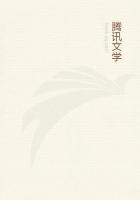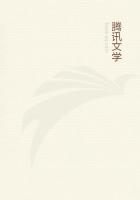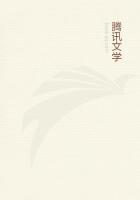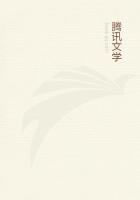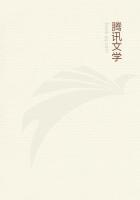But the sublime in nature-if we pass upon it a pure aesthetic judgement unmixed with concepts of perfection, as objective finality, which would make the judgement teleological-may be regarded as completely wanting in form or figure, and none the less be looked upon as an object of pure delight, and indicate a subjective finality of the given representation.So, now, the question suggests itself, whether in addition to the exposition of what is thought in an aesthetic judgement of this kind, we may be called upon to give a deduction of its claim to some (subjective) a priori principle.
This we may meet with the reply that the sublime in nature is improperly so called, and that sublimity should, in strictness, be attributed merely to the attitude of thought, or, rather, to that which serves as basis for this in human nature.The apprehension of an object otherwise formless and in conflict with ends supplies the mere occasion for our coming to a consciousness of this basis; and the object is in this way put to a subjectively-final use, but it is not estimated as subjectively-final on its own account and because of its form.(It is, as it were, a species finalis accepta, non data.)Consequently the exposition we gave of judgements upon the sublime in nature was at the same time their deduction.For, in our analysis of the reflection on the part of judgement in this case, we found that in such judgements there is a final relation of the cognitive faculties, which has to be laid a priori at the basis of the faculty of ends (the will), and which is therefore itself a priori final.
This, then, at once involves the deduction, i.e., the justification of the claim of such a judgement to universally-necessary validity.
Hence we may confine our search to one for the deduction of judgements of taste, i.e., of judgements upon the beauty of things of nature, and this will satisfactorily dispose of the problem for the entire aesthetic faculty of judgement.
SS 31.Of the method of the deduction of judgements of taste.
The obligation to furnish a deduction, i.e., a guarantee of the legitimacy of judgements of a particular kind, only arises where the judgement lays claim to necessity.This is the case even where it requires subjective universality, i.e., the concurrence of every one, albeit the judgement is not a cognitive judgement, but only one of pleasure or displeasure in a given object, i.e., an assumption of a subjective finality that has a thoroughgoing validity for every one, and which, since the judgement is one of taste, is not to be grounded upon any concept of the thing.
Now, in the latter case, we are not dealing with a judgement of cognition-neither with a theoretical one based on the concept of a nature in general, supplied by understanding, nor with a (pure)practical one based on the idea of *******, as given a priori by reason-and so we are not called upon to justify a priori the validity of a judgement which represents either what a thing is, or that there is something which I ought to do in order to produce it.
Consequently, if for judgement generally we demonstrate the universal validity of a singular judgement expressing the subjective finality of an empirical representation of the form of an object, we shall do all that is needed to explain how it is possible that something can please in the mere formation of an estimate of it (without sensation or concept), and how, just as the estimate of an object for the sake of a cognition generally has universal rules, the delight of any one person may be pronounced as a rule for every other.
Now if this universal validity is not to be based on a collection of votes and interrogation of others as to what sort of sensations they experience, but is to rest, as it were, upon an, autonomy of the subject passing judgement on the feeling of pleasure (in the given representation), i.e., upon his own taste, and yet is also not to be derived from concepts; then it follows that such a judgement-and such the judgement of taste in fact is-has a double and also logical peculiarity.For, first, it has universal validity a priori, yet without having a logical universality according to concepts, but only the universality of a singular judgement.Secondly, it has a necessity (which must invariably rest upon a priori grounds), but one which depends upon no a priori proofs by the representation of which it would be competent to enforce the assent which the judgement of taste demands of every one.
The solution of these logical peculiarities, which distinguish a judgement of taste from all cognitive judgements, will of itself suffice for a deduction of this strange faculty, provided we abstract at the outset from all content of the judgement, viz., from the feeling of pleasure, and merely compare the aesthetic form with the form of objective judgements as prescribed by logic.We shall first try, with the help of examples, to illustrate and bring out these characteristic properties of taste.
SS 32.First peculiarity of the judgement of taste.
The judgement of taste determines its object in respect of delight (as a thing of beauty) with a claim to the agreement of every one, just as if it were objective.
To say: "this flower is beautiful is tantamount to repeating its own proper claim to the delight of everyone.The agreeableness of its smell gives it no claim at all.One man revels in it, but it gives another a headache.Now what else are we to suppose from this than that its beauty is to be taken for a property of the flower itself which does not adapt itself to the diversity of heads and the individual senses of the multitude, but to which they must adapt themselves, if they are going to pass judgement upon it.And yet this is not the way the matter stands.For the judgement of taste consists precisely in a thing being called beautiful solely in respect of that quality in which it adapts itself to our mode of taking it in.

